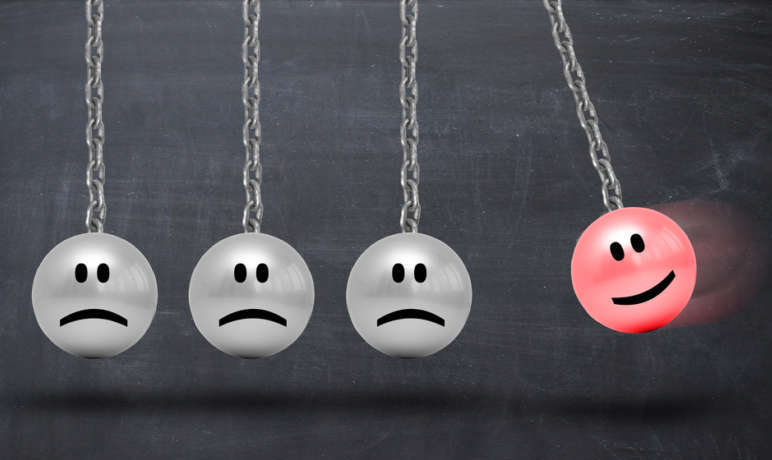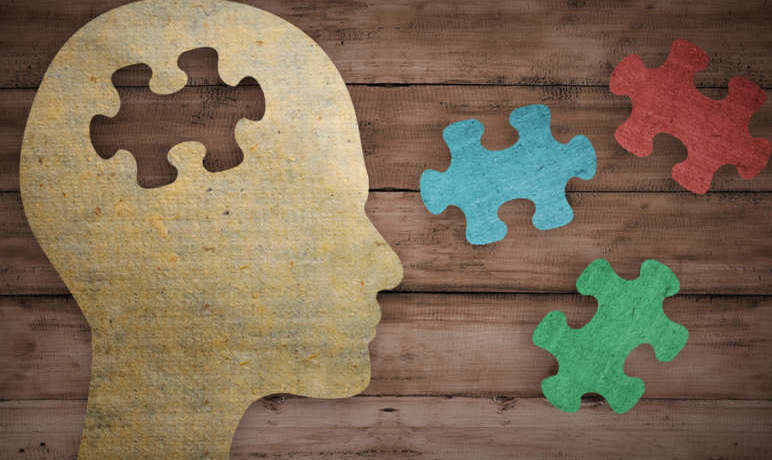Extract from the Happiness Trap, by Dr. Russ Harris.
Myth No. 1: Happiness Is The Natural State For All Human Beings
Our culture insists that humans are naturally happy.
Remember, one in ten adults will attempt suicide, and one in five will suffer from depression.
What’s more, the statistical probability that you will suffer from a psychiatric disorder at some stage in your life is almost 30 per cent! Not exactly great odds, are they?
And when you add in all the misery caused by problems that are not classified as psychiatric disorders — loneliness, divorce, sexual difficulties, work stress, midlife crisis, relationship issues, domestic violence, social isolation, bullying, prejudice, low self-esteem, chronic anger and lack of meaning or purpose in life — you start to get some idea of just how rare true happiness really is.
Unfortunately, many people walk around with the belief that everyone else is happy except for them. And — you guessed it — this belief creates even more unhappiness.
Myth No. 2: If You’re Not Happy, You’re Defective
Following logically from Myth 1, western society assumes that mental suffering is abnormal. It is seen as a weakness or illness, a product of a mind that is somehow faulty or defective.
This means that when we do inevitably experience painful thoughts and feelings, we often criticise ourselves for being weak or stupid.
Health professionals contribute to this process by readily slapping on labels such as, ‘You’re depressed’, and these labels merely confirm how defective we are.
Acceptance and Commitment Therapy is based on a dramatically different assumption. ACT proposes that the normal thinking processes of a healthy human mind will naturally lead to psychological suffering.
You’re not defective — your mind’s just doing its job; the thing it evolved to do. Fortunately, ACT can teach you how to adapt to this in such a way that your life will be powerfully transformed.
Myth No. 3: To Create A Better Life, We Must Get Rid Of Negative Feelings
We live in a feel-good society, a culture thoroughly obsessed with finding happiness. And what does that society tell us to do? To eliminate ‘negative’ feelings and accumulate ‘positive’ ones in their place. It’s a nice theory and on the surface it seems to make sense.
After all, who wants to have unpleasant feelings? But here’s the catch: the things we generally value most in life bring with them a whole range of feelings, both pleasant and unpleasant.
For example, in an intimate long-term relationship, although you will experience wonderful feelings such as love and joy, you will also inevitably experience disappointment and frustration.
There is no such thing as the perfect partner and sooner or later conflicts of interest will happen.
The same holds true for just about every meaningful project we embark on. Although they often bring feelings of excitement and enthusiasm, they also generally bring stress, fear and anxiety.
So if you believe Myth 3, you’re in big trouble, because it’s pretty well impossible to create a better life if you’re not prepared to have some uncomfortable feelings.
Myth No. 4: You Should Be Able To Control What You Think And Feel
The fact is, we have much less control over our thoughts and feelings than we would like. It’s not that we have no control; it’s just that we have much less than the ‘experts’ would have us believe. However, we do have a huge amount of control over our actions.
And it’s through taking action that we create a rich, full and meaningful life. (That’s why we say ACT as the word ‘act’, rather than as the initials A.C.T.)
The overwhelming majority of self-help programs subscribe to Myth 4.
For example, many approaches teach you to identify negative thoughts and replace them with more positive ones.
Other approaches encourage the repetition of positive affirmations such as, ‘Everything that happens is for my highest good and greatest joy’, or ‘I am strong, able and capable at all times’.
Still other approaches encourage you to visualise what you want, to vividly imagine yourself the way you want to be, living the life you dream of.
The basic theme of all these approaches is this: if you challenge your negative thoughts or images and, instead, repeatedly fill your head with positive thoughts and images, you will find happiness. If only life were that simple! I’m willing to bet that you’ve already tried countless times to think more positively about things and yet those negative thoughts keep coming back again and again.
Our minds have evolved over a hundred thousand years to think the way they do, so it’s not likely that a few positive thoughts or affirmations will change them all that much!
It’s not that these techniques have no effect; they can often make you feel better temporarily.
But they will not get rid of negative thoughts over the long term.
The same holds true for ‘negative’ feelings such as anger, fear, sadness, insecurity and guilt.
There are multitudes of psychological strategies to ‘get rid of’ such feelings. But you’ve undoubtedly discovered that even if they go away, after a while they’re back. And then they go away again.
And then they come back again. And so on and so on. The likelihood is, if you’re like most other humans on the planet, you’ve already spent a lot of time and effort trying to have ‘good’ feelings instead of ‘bad’ ones — and you’ve probably found that as long as you’re not too distressed, you can, to some degree, pull it off.
But you’ve probably also discovered that as your level of distress increases, your ability to control your feelings progressively lessens. Sadly, Myth 4 is so widely believed that we tend to feel inadequate when our attempts to control our thoughts and feelings fail.
These four powerful myths provide the basic blueprint for the happiness trap.
They set us up for a struggle we can never win: the struggle against our own human nature. It is this struggle that builds the trap.





